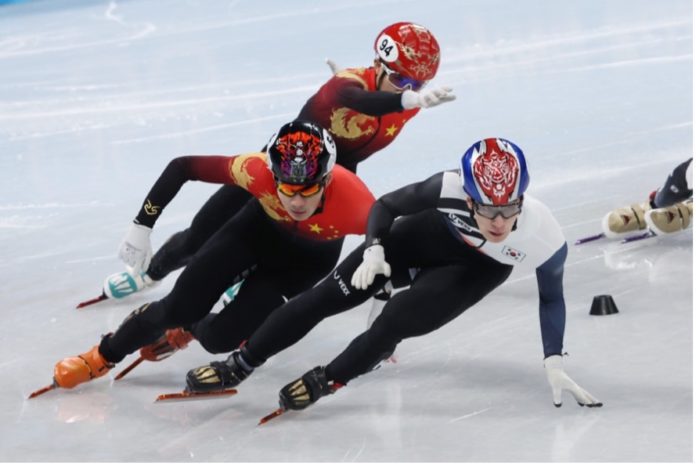
While Hwang Dae-heon and Lee June-seo were disqualified over controversial calls (lane change) in the semifinals of the 1,000-meter short track speed skating competition, China audaciously offered a lesson to an enraged South Korea by the biased ruling. On the 9th (local time), China’s state-run Xinhua News Agency stated, “It is the true Olympic spirit to win and lose,” and went on to target South Korea, “Since yesterday, netizens from other countries are taking it out on Chinese athletes’ social media accounts by posting malicious comments for their country’s athletes’ poor performance.”
It highlighted the hateful comments made to China’s short track speed skating coach Viktor An, “They threatened the family of a foreign coach of Team China. This goes against the spirit of the Olympics,” and criticized, “The attitude of accepting defeat while pursuing victory and the courage to admit that the player might not be good enough even though he attempts to become the No. 1 athlete is a virtue that athletes and spectators should have.” Several Chinese netizens are also pointing out that the reason why South Korea always comes out on top in short track speed skating is “due to committing fouls” and demanding that the Chinese government should bring back the ban against Korean Wave (KPOP and K-drama) products.
Meanwhile, China is making efforts to “dilute” the power of hashtags that criticize their oppression of Uyghur’s human rights. According to the Wall Street Journal on the 8th, Clemson University’s Media Forensics Hub reported that pro-China Twitter accounts are interfering with human rights advocates’ efforts to raise awareness.
Using the Winter Olympics as an opportunity, human rights advocates used hashtags including #GenocideGames, but beginning in late October, spam-like notes began to be posted in large quantities making it harder for activists to mobilize. This tactic is known as “hashtag flooding,” which dilutes the effectiveness by having social media users see other unrelated content when searching for the term. They also found that accounts using this tactic are mainly using non-Chinese names, such as Erin Lockett and Isaac Churchill.
The dangers posed by Chinese netizens and their comments are being known. The WSJ article points out, “The country’s [Chinese] authorities have also employed an army of pro-government internet users to boost nationalistic viewpoints.” In March 2021, the Associated Press (AP) also reported that Chinese diplomats and state-run media are spreading China’s unilateral claims around the world through Twitter, and that most of them are being spread through fake accounts or the 50 Cent Party (wumao).
They are known as the “50 Cent Party” because commentators receive 50 yuan for each post and in Beijing alone, there are 2 million people employed there. What’s surprising is that they are not part-timers, but actual government officials employed by a Chinese governmental department (2018 report from Harvard University).
Original article: https://www.jayupress.com/news/articleView.html?idxno=2297


